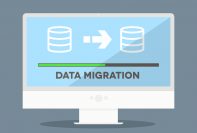Cloud computing has revolutionized the way we store and access information, offering countless benefits such as cost savings, increased accessibility, and rapid scalability. However, like any emerging technology, using cloud services comes with its own set of security challenges. In this article, we will explore the concept of cloud security, delve into cloud computing, and discuss the reasons behind its importance, how it functions, its significance, and the future of cloud security.
Grasping Cloud Computing and Cloud Security
Cloud computing encompasses the provision of computing services such as storage, processing power, software applications, and even advanced analytics through the internet. Users can access these services on-demand, providing them with the flexibility to scale their resources up or down according to their needs. This dynamic approach to computing resources not only reduces costs but also allows for faster innovation and increased collaboration among team members. Major companies like Amazon Web Services, Microsoft Azure, and Google Cloud Platform dominate the market, offering a variety of cloud services to suit different organizational needs.
In addition to the well-known public cloud providers, there are also private and hybrid cloud solutions. Private clouds are dedicated to a single organization and offer more control over security and customization, while hybrid clouds combine the best of both public and private cloud environments, providing organizations with increased flexibility and control.
In contrast, cloud security encompasses the protocols, technologies, and practices designed to protect cloud-based applications, data, and infrastructure. This includes ensuring that cloud servers remain secure and that data stored in the cloud is protected from unauthorized access, theft, or tampering. Cloud security measures can be implemented at various levels, such as the physical, network, application, and data levels.
At the physical level, cloud providers are responsible for securing their data centers with measures such as access control, video surveillance, and environmental controls. Network security involves protecting the communication pathways between cloud resources and end-users, employing techniques like firewalls, intrusion detection systems, and encryption.
Application security focuses on securing cloud-based applications from vulnerabilities and threats, using measures like secure software development practices, regular vulnerability scanning, and timely patching. Finally, data security involves protecting the actual data stored in the cloud, utilizing encryption, access controls, and data loss prevention techniques.
Together, these multi-layered security measures form a comprehensive cloud security strategy that helps organizations protect their valuable digital assets in the rapidly evolving cloud computing landscape.
The Importance of Cloud Security
Cloud security is of paramount importance for several reasons:
Data protection: Cloud security safeguards sensitive and confidential data, including personal information, financial data, and intellectual property. By employing robust security measures, organizations can prevent unauthorized access, data leaks, and theft, ensuring the privacy and integrity of their valuable information.
Business continuity: Security breaches in the cloud can lead to significant downtime, impacting productivity and revenue. Robust cloud security measures minimize this risk, ensuring operations remain up and running. A strong cloud security strategy includes backup and disaster recovery solutions that allow organizations to quickly restore their data and systems in case of an incident.
Compliance: Industries like healthcare, finance, and government are subject to strict regulations regarding data privacy and security, such as HIPAA, PCI DSS, and GDPR. Cloud security helps organizations maintain compliance and avoid penalties by implementing policies, procedures, and technologies that align with the required standards. This includes data encryption, access controls, and regular security audits to ensure ongoing compliance.
Customer trust: In today’s digital age, consumers prioritize data privacy and security when interacting with businesses online. Implementing solid cloud security measures can demonstrate an organization’s commitment to protecting customer data, thereby building trust and fostering long-lasting relationships. Transparent communication about security practices and clear privacy policies can further enhance customer confidence in an organization’s commitment to data protection.
Competitive advantage: As cyber threats continue to evolve, organizations that prioritize cloud security can gain a competitive edge by minimizing the risk of breaches and showcasing their dedication to safeguarding customer data. A strong security posture can also lead to improved brand reputation and increased customer loyalty.
Cost savings: While investing in cloud security may initially require resources, it can ultimately result in cost savings by preventing security breaches, avoiding downtime, and reducing the need for costly remediation efforts. Proactively addressing potential vulnerabilities and threats can help organizations avoid the financial and reputational damage that often accompanies security incidents.
How Cloud Security Operates
Cloud security encompasses a variety of strategies and techniques that work together to protect cloud-based applications, data, and infrastructure. One key aspect of cloud security is data security, which ensures that data stored in the cloud is encrypted and protected from unauthorized access through methods such as strong passwords, multi-factor authentication, access controls, and encryption both at rest and in transit.
In addition to data security, network security plays a critical role in safeguarding cloud infrastructure from various attacks, including denial-of-service (DoS) attacks, malware, and phishing scams. Implementing firewalls, intrusion detection and prevention systems, and other network security measures helps achieve a secure network environment in the cloud.
Furthermore, access control is a crucial component of cloud security, as it ensures that only authorized users can access cloud-based applications and data. Identity and access management (IAM) tools, such as single sign-on (SSO) and role-based access control (RBAC), enable administrators to manage user access and permissions effectively.
Lastly, threat monitoring and management are essential for detecting and responding to security incidents in real-time, minimizing the potential damage caused by breaches. By employing comprehensive threat monitoring and management solutions, organizations can identify and address vulnerabilities, thereby strengthening their overall cloud security strategy.
By effectively combining these strategies and techniques, organizations can create a robust cloud security posture that not only protects their valuable digital assets but also helps maintain trust and compliance in an ever-evolving digital landscape.
The Future of Cloud Security
As organizations increasingly rely on cloud services, cloud security will need to evolve to address new threats and challenges. Emerging technologies like artificial intelligence and machine learning can be leveraged to improve threat detection and response capabilities. Additionally, increased collaboration between cloud service providers and security vendors will help develop more comprehensive and integrated security solutions.
Organizations must adapt to the ever-changing landscape of cloud computing by investing in continuous security training for their employees. Educating staff about the importance of cloud security and best practices for maintaining it can significantly reduce the risk of human error, which is a leading cause of security breaches. Encouraging a culture of security awareness within the organization will contribute to the overall effectiveness of cloud security measures.
Our friends, managed services cybersécurité experts from Paris, believe that the widespread adoption of hybrid and multi-cloud environments presents new complexities for cloud security. These configurations require organizations to manage security across multiple cloud platforms and on-premises infrastructure, necessitating a more comprehensive and unified approach. Adopting a zero-trust security model, where every access request is verified and authenticated regardless of its origin, can help mitigate potential risks associated with these complex environments.
Data privacy regulations, such as the General Data Protection Regulation (GDPR) and the California Consumer Privacy Act (CCPA), are also shaping the future of cloud security. As governments around the world introduce more stringent data protection laws, organizations will need to ensure their cloud security measures are compliant with these regulations. This will require ongoing monitoring and auditing of cloud security practices and may necessitate updates to existing policies and procedures.
Additionally, the rise of edge computing, where data processing occurs closer to the source of data generation, introduces new challenges for cloud security. As data is processed and stored at the edge, traditional cloud security measures may not be sufficient, requiring organizations to develop new strategies for securing edge devices and the data they generate.
In conclusion, the future of cloud security will be characterized by a constant evolution in response to emerging technologies, regulatory changes, and new threats. Organizations must remain vigilant and adaptive, continuously updating their cloud security strategies to ensure the protection of their valuable assets. By staying informed about the latest developments in cloud security and embracing a culture of security awareness, organizations can reduce the risk of security breaches and maintain trust in the digital age.



